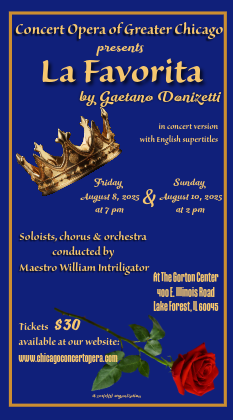MusicNOW’s British program offers spirited jazz and a tragic song cycle

The second MusicNOW event of the season was a Basically British affair, and though the two composers represented are friends, the pair of works performed Monday night at the Harris Theater offered more contrast than similarities.
The main work of the evening was Mark-Anthony Turnage’s Twice Through the Heart. Written in 1996, this song cycle went through much gestation, as Turnage related to the audience, before the CSO Mead Composer-in-Residence settled on it as a vocal scena for mezzo-soprano and 16-player ensemble.
The three-part work is based upon a true British case in which a woman murdered her husband, then refused to testify about his prolonged abuse during her trial. Jackie Kay’s plain-spun texts reflect the humdrum life and almost inarticulate yet touching longing for release from a marriage that has become increasingly untenable.
Turnage’s ear for striking colors (including celesta, bass clarinet and alto flute) and whipcrack rhythmic vitality are boldly manifest here, with the bracing mix of strings, winds, brass and percussion dexterously deployed to reflect the woman’s plaintive sadness and emotional desperation.
If Twice through the Heart just misses being one of Turnage’s top-drawer works, it’s because of the somewhat unvaried air of doleful melancholy as well as the text’s more pedestrian moments and repetition.
Barbara Rearick was an inspired soloist. Judiciously amplified, the mezzo-soprano brought dignity, notable clarity and expressive commitment to the music without ever crossing the line to melodrama. Cliff Colnot led the MusicNOW Ensemble in a fizzing performance with the forces precisely balanced and the singer and chamber orchestra equal partners, as Turnage intended.
Considerably lighter fare opened the concert with Richard Rodney Bennett’s A Jazz Calendar.
Much of the British music world was shocked in the early 1960s when the young modernist composer and Boulez disciple created this approachable, decidedly non-thorny score, later adapted as a dance piece by the Royal Ballet. As it was, A Jazz Calendar proved a road marker of sorts, heralding Bennett’s turn towards a more tonal and populist style, reflected in his film scores as well as his concert works to come.
Based upon the child’s nursery rhyme (“Monday’s child is fair of face, Tuesday’s child is full of grace,” etc.), the work is cast in seven movements reflecting the varied children’s qualities for each day of the week.
Unlike many of the bloated attempts to meld classical and jazz that have come since, A Jazz Calendar is completely fresh and utterly delightful, largely because it doesn’t even try to mix the genres. The music is straight-ahead jazz from the first chord, segueing from a laid-back Bill Evans cool jazz to post bebop and other contemporary strains. Yet there’s never a sense of slumming or merely aping other jazz styles, with Bennett’s freshness, rhythmic ingenuity and array of varied instrumental solos consistently engaging the ear.
With a crack ensemble of twelve terrific musicians, one could simply sit back and listen to these wonderful players do their stuff. Colnot wisely directed with a noninterventionist touch, setting the beat and lightly cuing dynamics but otherwise just letting the players perform, which they did with enormous corporate verve and individual panache. Notable were Charles Vernon’s affecting trombone solo painting Wednesday’s woeful child, as well as fine contributions by baritone sax player Jerry DiMuzio, flutist Steve Eisen, and bass Robert Kassinger.
Posted in Performances
